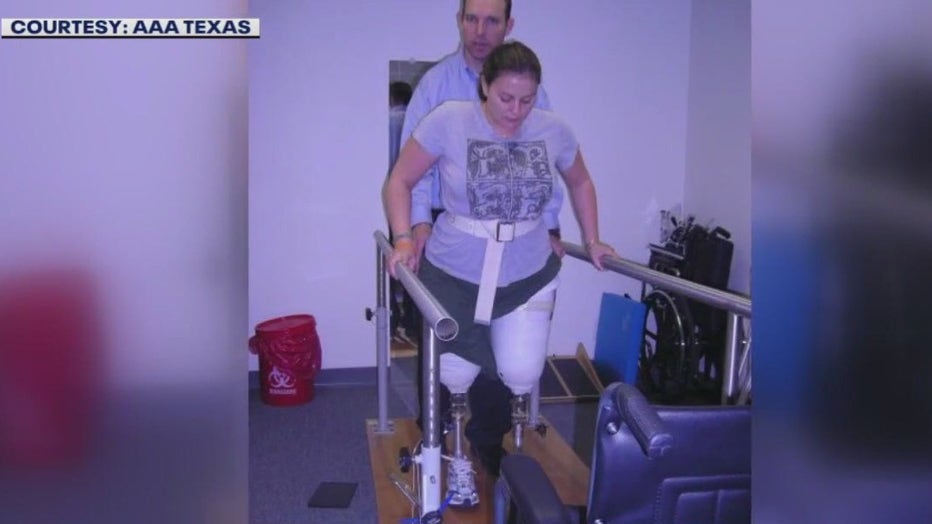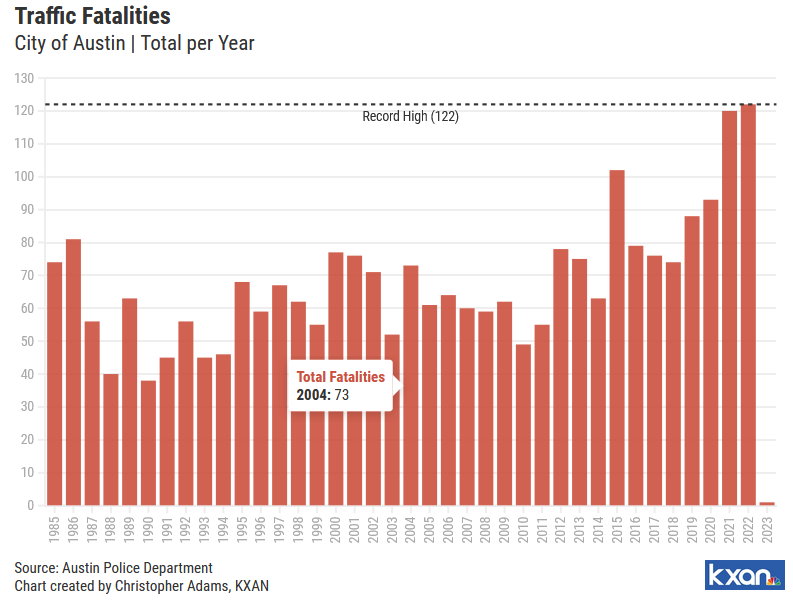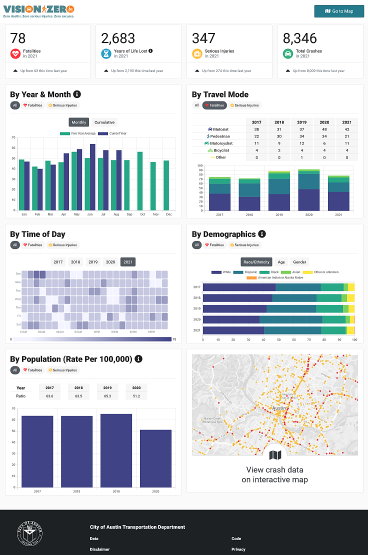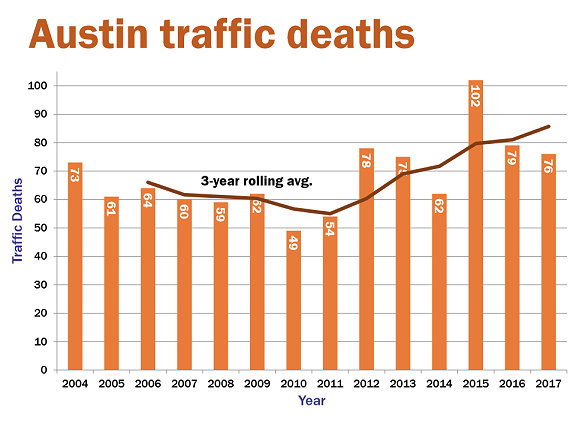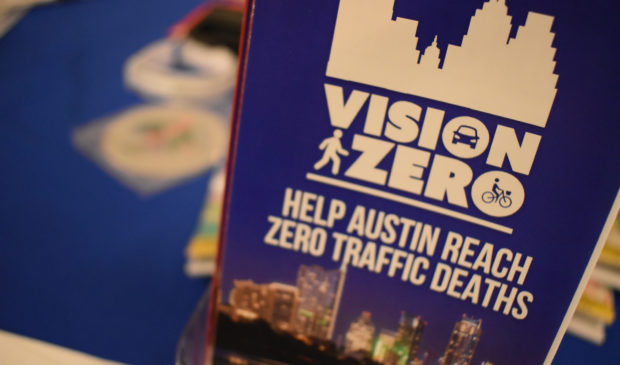 AUSTIN (KXAN) — More than 400 people have been killed or seriously injured in Austin crashes so far this year, based on a Vision Zero data analysis released this week. As of Oct. 31, Austin transportation officials determined 73 people died and 336 were seriously injured in crashes. A disproportionate number of those impacted were classified as “vulnerable roads users” — with more than 40% of those killed or injured pedestrians, cyclists, motorcyclists and e-scooter riders, per Vision Zero data. Austin data also noted an overrepresentation of people of color in its serious and fatal crash data. While Black residents account for only about 7% of Austin’s population, Black people accounted for 14% of serious and fatal injuries locally. Men were also overly represented in crash data, with two-thirds of serious or fatal crash victims classified as men.
AUSTIN (KXAN) — More than 400 people have been killed or seriously injured in Austin crashes so far this year, based on a Vision Zero data analysis released this week. As of Oct. 31, Austin transportation officials determined 73 people died and 336 were seriously injured in crashes. A disproportionate number of those impacted were classified as “vulnerable roads users” — with more than 40% of those killed or injured pedestrians, cyclists, motorcyclists and e-scooter riders, per Vision Zero data. Austin data also noted an overrepresentation of people of color in its serious and fatal crash data. While Black residents account for only about 7% of Austin’s population, Black people accounted for 14% of serious and fatal injuries locally. Men were also overly represented in crash data, with two-thirds of serious or fatal crash victims classified as men.
When comparing data from 2019 to 2023, Austin sees an average of 559 people killed or seriously injured each year; when broken down, that average reflects 96 deaths and 463 serious injuries. When zooming out nationally and internationally, more than 44,000 people in the U.S. and 1.35 million people globally are killed or seriously injured in crashes each year.
Vision Zero’s data analysis comes in advance of the World Day of Remembrance for Road Traffic Victims, recognized annually on the third Sunday of November. The global initiative highlights the lives and losses of those killed or seriously injured, as well as advocates for certain safety initiatives to minimize traffic fatalities.
Locally, Vision Zero has also worked on transportation infrastructure revamps and projects to address vehicular, pedestrian and cyclist safety. This summer, Vision Zero celebrated the completion of the program’s first round of bond-funded safety projects — a $15 million, 2016 mobility bond funding allocation.
Those 2016 dollars focused on initiatives like upgrading crosswalks to separate pedestrians and vehicular traffic, shared-use paths for non-vehicular traffic and improvements to signal timing and street lighting. Separately, a June 2024 Vision Zero report found major intersections treated with safety enhancements reported a 22% reduction in both fatal and serious injury crashes.
More details on the program are available online.

